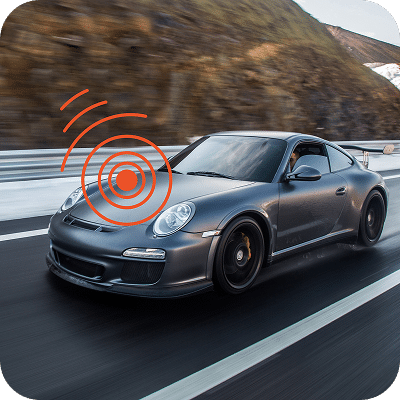How Businesses Can Benefit from Fleet Tracking
What kind of businesses use fleet tracking systems?
Businesses have a unique operational model that helps them thrive in an ever-growing market. It is crucial for businesses to identify revenue points. This realization often occurs during the growth and expansion of the company. One such revenue point for businesses is managing fleets for better and optimal performance. Fleet tracking systems are used for businesses that transport goods and services on a daily basis. One can easily identify whether managing company vehicles is good for the business by asking two questions.
- How important are transportation and logistics in the company?
- Does it directly impact the revenue of the company when logistics do not follow the specified time and route?
Common businesses that involve fleet management include parcel delivery businesses, online food and service delivery businesses, and car and scooter rental businesses.
Identify the revenue-generating points in a business that involve fleet management.
It is important to understand how businesses use GPS fleet tracking to improve their performance. Using a fleet tracking system, one can monitor different aspects of fleets, such as
- Speed of the individual vehicle: It is a tough task to monitor the speed of every vehicle to ensure that no one is in danger of over speeding. However, using tracker devices, an alert can be configured to determine whether a vehicle is speeding without prior approval. This will reduce the cost of vehicle maintenance and other unnecessary expenditures.
- Distance traveled: The fleet manager will obtain the distance covered by the fleets during the day or in a specific time frame. This is important because time management and on-time delivery are paramount to any business. From this, the fleet manager can ensure that the fleets are traveling the stipulated distance and everything is on schedule.
- Running time vs. resting time: Drivers need rest between trips, but unexpected delays are always a headache. Avoiding such nonproductive resting time will be a game changer for business. Fleet managers will always try to avoid such bottlenecks by providing additional support, thereby increasing profits.
Fuel consumption: Fuel expenditure is growing rapidly as part of inflation. There are many strategies to reduce fuel consumption. For example, if a trip would result in a high fuel consumption expense, but the profit from this trip is low, then it is time to think about other options. Fleet tracking dashboards are a good source of such insights.
As per Link Labs, Fleet tracking helps optimize routes and reduce fuel consumption by improving overall operational efficiency.
Route history and logbook
The logbook inside the PAJ Finder Portal contains all individual trips. This route history will be stored on the server for 365 days starting from the day of recording. The logbook is designed to help businesses obtain useful insights from past trips. Trips can be grouped based on vehicle, driver, and date range. The data are kept in such a way that one can process them for better understanding performance. Along with other useful fleet tracker tools, Logbook has a unique application for businesses.
The fleet tracker from PAJ also provides alerts such as speeding alerts, vibrational battery alerts, and geolocation alerts. In addition, different types of tracking dashboards are used to analyze fleet performance.
What should you look for in a fleet tracking solution?
GPS Fleet tracking is somewhat more complex than regular car tracking. The data in fleet tracking systems are high compared with single vehicle tracking. Therefore, the software should be able to process large amounts of data at a fast pace.
Connectivity of trackers is another important aspect when choosing a fleet tracker. There may be cross-border trips and trips through regions with low cell phone connectivity. A fleet tracking system should work above all these adverse situations so that drivers are always in contact with fleet managers.
Route data and driver information are sensitive to business. Therefore, there should be measures for proper data protection.
Device set and architecture is another important factor. The device should withstand extreme weather and should always perform its duty.












